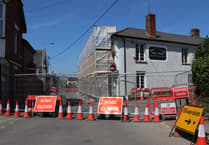I WAS an Independent member of the Mid Devon District Council (MDDC) for four years.
During the last couple of years, I was Chairman of the Scrutiny Committee for a year and ended up being elected as Leader of the Council, after the previous Leader resigned.
During all of this time I became aware of a considerable amount of information concerning 3Rivers Development Limited.
After the Council decided to close 3Rivers down, the current Chair of the Scrutiny Committee decided to conduct a "No Blame – Lessons Learned" enquiry.
I informed her, directly, that I could provide information which would be useful to that enquiry.
On October 11, I received a letter from the Chief Executive asking me to contribute to the enquiry but this was limited to seven specific areas which, in my view, was restricting the scope of the enquiry.
Further evidence of restriction was clear in the letter, which said: “The District Solicitor will be reviewing all information provided in order to ensure it meets the standards of accuracy and integrity that befits the worthiness of the scrutiny committee’s consideration”.
I maintain an interest in what happens at the Council and occasionally ask questions during Public Question Time.
I have never experienced any problems at meetings but recently, when you register to ask a question at a meeting, you are given a "procedural note" from the Chief Executive.
This note ends with the following words: “Finally, please remember that appropriate standards of behaviour and conduct are expected in the council chamber. Public participation is welcome, but you should be respectful towards all those who may hold different views from your own, should not criticise individuals directly, and will at all times accord with the direction of the Chairman.
"We welcome passionate engagement, but rude or abusive comments will not be tolerated and these comments will not be contained within the minutes….”.
At the Scrutiny Committee Meeting on October 30, 2023, I asked a number of questions which centred around the restrictions which, I felt, had been put in place to control the evidence that could be provided.
One question was: “Are you wishing to apply censorship to the work of the Scrutiny Committee?”. The answer, which has been published on the Council website, reads: “This question is an insult to the Chairman, and shows a disconcerting lack of respect from a former leader of this council who ought to know better”.
I had no intention of insulting anyone, but I asked this straight question to draw attention to the restrictions which were being placed on the information that could be given, the limited list of the persons being asked to give information, and the subsequent vetting of submissions.
I did not expect such an answer. If the Chief Executive can tell the public, before they ask their questions: “you should be respectful towards all those who may hold different views from your own, and not criticise individuals directly”, perhaps he should give the same advice to the Committee Chairs, before they provide their answers.
My view of "openness and transparency" is obviously different to that of the Chair of Scrutiny Committee, which is why I asked my questions to that Committee.
I am now writing to inform you, and your readers, of the narrow way it appears this "review" is being conducted and the strict control of what can be put before Members.
To put my questions into context, I will take that quote from the Chief Executive’s letter: “The District Solicitor will be reviewing all information provided in order to ensure it meets the standards of accuracy and integrity that befits the worthiness of the scrutiny committee’s consideration”.
I think that this is about as near to censorship as you can get and, I believe, my use of that word was appropriate.
Barry G J Warren
Willand



Comments
This article has no comments yet. Be the first to leave a comment.